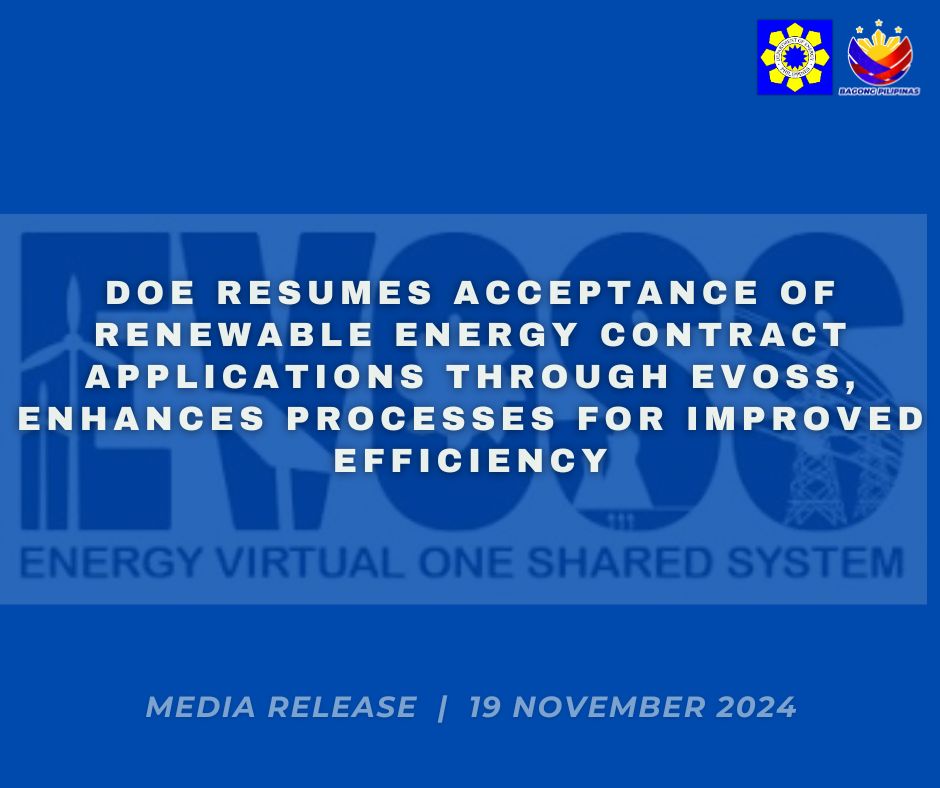
The Department of Energy (DOE) has announced the resumption of the acceptance and processing of renewable energy contract applications through the Energy Virtual One-Stop Shop (EVOSS) System, effective 25 November 2024. Beginning on this date, developers in the renewable energy sector will now be able to submit their official letters of intent and applications for renewable energy contracts through the DOE's online platform, EVOSS.
It may be recalled that the processing of renewable energy applications in the EVOSS System was temporarily suspended on 25 June 2024 to allow the DOE to update and align the application process in the EVOSS in accordance with the revised omnibus guidelines governing renewable energy contracts issued on 10 June 2024.
The five-month moratorium provided the DOE the time to update the list of active renewable energy contracts, enhance the functionality of the EVOSS System, and streamline processes with concerned government agencies. Additionally, a new procedure was established for the real-time updating of available areas for renewable energy service and operating contract applications.
“This resumption marks a significant step in advancing the country’s renewable energy goals, facilitating a more efficient project approvals while ensuring that future developments align with the updated regulatory framework. Through these improvements, we hope to foster greater investment and development in the renewable energy sector, contributing to the goal of renewable energy share of 35 percent by 2030 and 50 percent by 2040 in the power generation mix,” Energy Undersecretary Rowena Cristina L. Guevara said.
The revised omnibus guidelines introduced new opportunities for developers to improve their work programs. One major change is the option for developers to obtain a Certificate of Authority (COA) before signing a renewable energy contract.
“With the inclusion of COA in the EVOSS application process and a cleaner list of registered renewable energy project developers, we can now monitor projects more effectively,” Undersecretary Guevara added. “This will foster a more dynamic and competitive environment, driving innovation and efficiency, while ensuring that the energy transition is led by committed and capable developers,” Undersecretary Guevara said.
The COA is a key step in the development process, enabling developers to secure the necessary permits and conduct essential surveys and pre-feasibility activities even prior to the official commencement of the 25-year contract. By allowing these activities to take place earlier, developers can better prepare for project implementation and proactively address potential challenges. This streamlined approach not only accelerates project timelines but also enhances the overall efficiency of the development process.
The COA is valid for three (3) years for offshore wind projects, biomass, geothermal, hydropower, ocean and onshore wind projects, two (2) years for floating solar, and one (1) year for land-based solar projects.
Additionally, the revised guidelines simplify the process for obtaining incentives for renewable energy projects. Developers can now secure a certificate of registration (COR) from the DOE after confirming the commercial viability of their projects. In the case of biomass and solar energy projects, developers can secure the COR after achieving financial closure. ###
